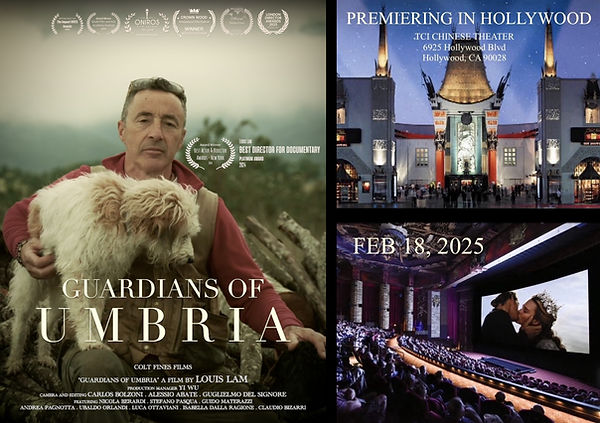

C O L T F I N E S F I L M S
L O U I S L A M
Film Producer & Director
To know our world is to embrace. To understand all cultures and bond with the very people who live and thrive in these lands. To get through to the heart and soul. To celebrate our differences and to become one. This is a journey of freedom.
Winners
Best Director Awards


Best Documentary Awards
American Golden Picture: Full Interview

Official Selections


UPCOMING FILMS
NEW RELEASES
Salento International Film Festival
On behalf of the entire team at the Latino and Native American Film Festival (LANAFF), please accept our warmest congratulations on receiving a major award for your outstanding film in the 2025 edition of the festival.
Your work moved us deeply, … both in its artistry and in its powerful message. We are honored that you entrusted us with such a meaningful and beautifully crafted piece. It was a privilege to share your film with our audience, and its impact was palpable.
We very much look forward to seeing more of your productions in the near future,
and we are excited to follow your continued creative journey.
Wishing you much success in all that lies ahead. With sincere appreciation and very best regards,
Carlos A Torre
On behalf of the LANAFF 2025 Team
Golden State Film Festival

Official Press release featuring the film Guardians of Umbria
Official Press release featuring the film Guardians of Umbria
FEATURE & SHORT DOCUMENTARIES

EXPLORING PLANET SERIES




















HEALTH RELATED DOCUMENTARIES
A series of documentaries on health, culture, & medical anthropology. Dr Louis Lam, a physician with a degree in medicine & anthropology travels around the world to study how different cultures practice and maintain their health in their natural way.
OTHER D O C U M E N T A R I E S

FOOD RELATED DOCUMENTARIES
Food and cultures documentaries spanning the world, from the cave culture of Puglia, Pure Life of Costa Rica, the desert city of Dubai, to the hidden spots of Hong Kong.

UNDERWATER DOCUMENTARIES
These documentaries explore the underwater world in different dive destination in the world including amazing coral reefs, the beautiful architecture of cave diving, and rich marine lives.
ART F I L M S

Chasing Planet is a collection of short art films capturing the beauty and cinematography of different countries and places of the world.

F A S H I O N P L A N E T
Fashion Planet is a collection of short fashion art films in different places of the world that offer the colors, backgrounds, and themes of fashion shoots.

A R T & P H O T O
Art & Photo Planet is a collection of short art films portraying interesting themes and stories.

T R A V E L P L A N E T
Travel Planet is a collection of short films on moments, events, & celebrations around the world.
P R E S S
Official Press release featuring the film Guardians of Umbria
Official Press release featuring the film Guardians of Umbria
















